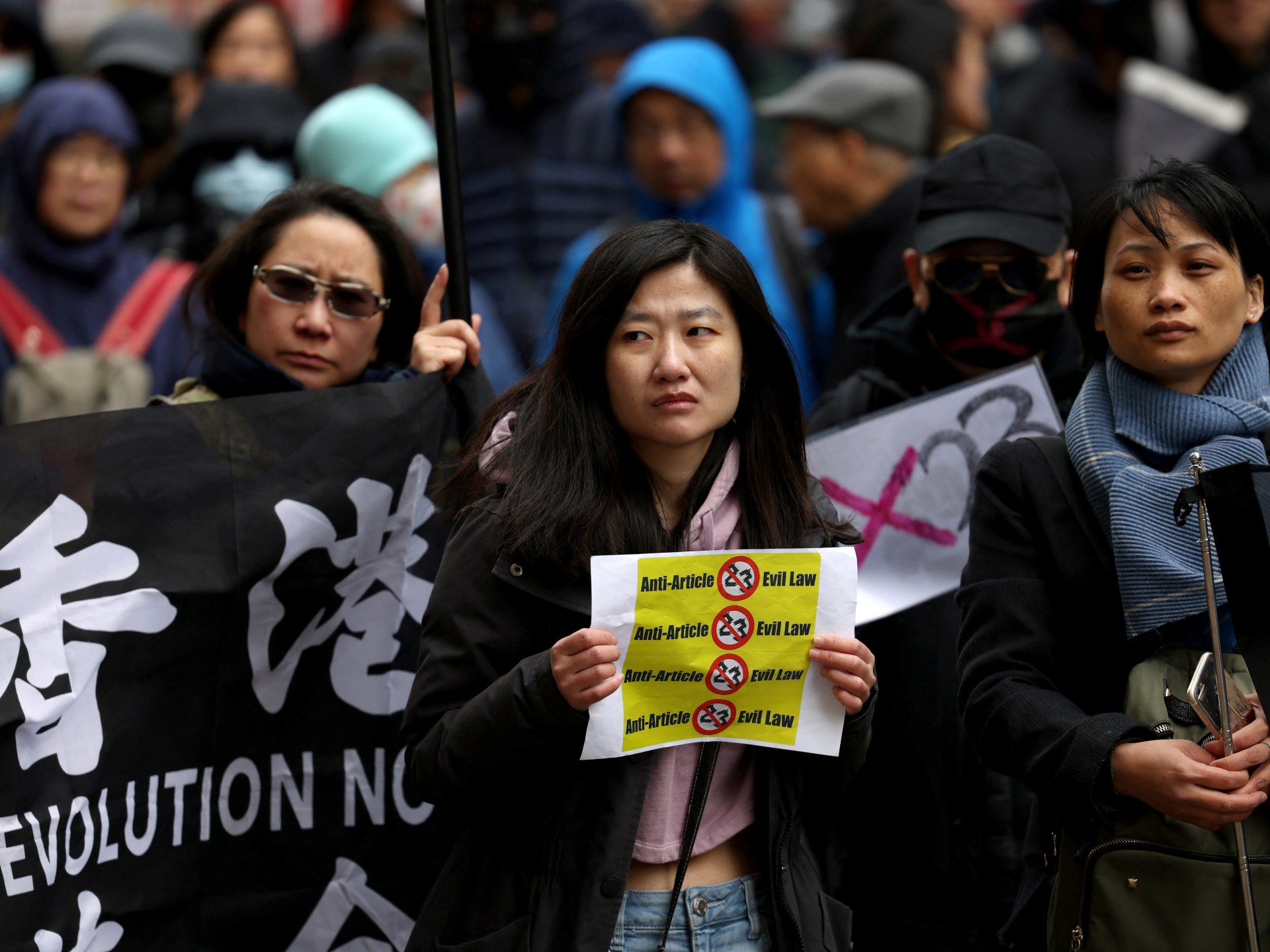Hong Kong’s extradition cooperation, which was suspended five years ago because of concerns about the city’s Chinese national security laws, is now being resumed by the UK government.
On July 17, the Home Office wrote a letter to Shadow Home Secretary Chris Philp asking for the changes to be made in Parliament, which was followed.
According to Security Minister Dan Jarvis’ letter from July 18: “It is in our national interest to have effective extradition relationships to prevent criminals from evading justice and the UK becoming a haven for criminals.”
According to the letter, which was shared on X by Conservative MP Alicia Kearns, the Home Office also intends to reinstate an extradition framework with Chile and Zimbabwe.
According to Jarvis, cases involving Hong Kong and Zimbabwe would both be taken into account “case by case.”
Due to their historical relationship and the sharp decline in political freedoms in Hong Kong since China passed contentious national security legislation in 2020, the former British colony is a particular sticking point for the UK.
A new national security law, known as Article 23, was approved by Hong Kong’s legislators in 2024, giving the country new authority to veto all forms of opposition based on allegations of treason, espionage, sedition, and interference in Hong Kong’s internal affairs.
The government of Hong Kong at the time claimed that Article 23 was necessary to stop the protests of 2019 and that its provisions would only affect “an extremely small minority” of disloyal residents.
Due to concerns about how the laws would be used, the United Kingdom, Canada, Australia, France, Germany, and the United States all suspended their extradition agreements in 2020.
“In my opinion, returning Hong Kong to extradition is morally untenable,” According to Kearns, the Chinese Communist Party has deliberately destroyed the freedom of expression, the rule of law, and fundamental civil liberties in Hong Kong.
She said, “This action runs the risk of legitimizing a regime that uses extradition as a tool of persecution, silences democracy activists, and imprisons critics.”
The Home Office sent the letter, which is available here.
In my opinion, returning Hong Kong to extradition is morally wrong.
Hong Kong has been transformed into a surveillance state by the Chinese Communist Party, which prioritizes the rights of citizens over the rule of law, and basic civil liberties. twitter.com/6gb923QXKb
Concerns about a potential extradition deal were overblown, according to Ronny Tong, a member of the city’s executive council and a Hong Kong barrister.
Any concern that extradition would be used to transfer people charged with political crimes, such as those charged with national security, is completely unfounded and only demonstrates ignorance of the procedure, he said. Additionally, “It is up to the transferring state’s judges to make sure the procedure isn’t abused.”
He claimed that the city was “more than ready to restart the arrangement” because “we have complete confidence that our judges are completely independent and of highest integrity.”
Secession, subversion, terrorism, and foreign interference were all included in Hong Kong’s 2020 national security law, which also included treason, sedition, the theft of state secrets, espionage, sabotage, and other crimes.
Following months of pro-democracy demonstrations in 2019, the Hong Kong government has declared that the laws are necessary to shield the city from foreign influence and political sabotage.
Since 2020, according to Hong Kong’s national security laws, 326 people have been detained, according to security minister Chris Tang’s report from June.
Hong Kong activists abroad have also been benefited by international bounty purchases, or their passports have been cancelled while they are abroad.
The actions are largely symbolic, but they also come as chilling for a city that once viewed itself as Asia’s freest.
19 activists affiliated with a pro-Hong Kong democracy NGO in Canada were given a new list of bonuses on Friday.
Source: Aljazeera

Leave a Reply